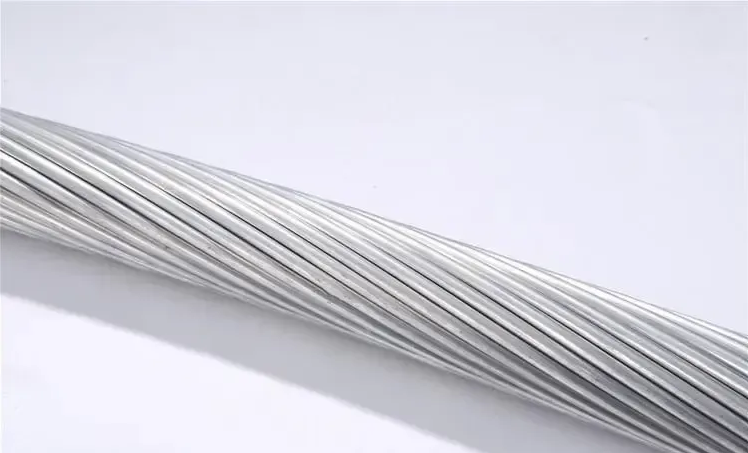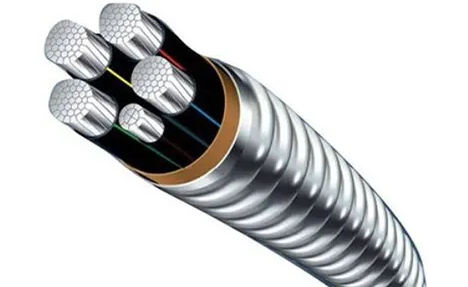Aluminum core cables and aluminum alloy cables are widely used in power transmission and connection fields, but they have significant differences in many aspects. Here’s a closer look at the differences between the two:
Material composition
Aluminum core cable: Mainly composed of pure aluminum material, it is a combination of pure aluminum core wire, insulation material and sheath material. Pure aluminum is widely used due to its relatively low cost.
Aluminum alloy cable: Contains aluminum alloy components, usually mixed with other alloying elements such as silicon, magnesium, copper, iron, etc. This alloying treatment not only improves the conductivity and strength of the material, but also gives the cable more excellent properties.
Performance characteristics
Conductive properties
Aluminum core cable: Compared with copper, aluminum has poorer electrical conductivity and higher resistance. Therefore, in some situations where higher conductivity requirements are required, larger cross-section aluminum core cables may be needed.
Aluminum alloy cable: Aluminum alloy has better electrical conductivity than pure aluminum because alloying can improve the conductivity of the material to a certain extent. This gives aluminum alloy cables advantages in some situations that require lower resistance.
Mechanical properties
Aluminum core cable: relatively soft, good bending performance, but low tensile strength. Therefore, it is suitable for some scenarios that require bending, but may not perform well in scenarios that require high mechanical properties such as tensile strength and twisting.
Aluminum alloy cable: Due to the greater strength of aluminum alloy, it has better mechanical properties. Its tensile strength and elongation are better than pure aluminum cables, so it is suitable for some occasions that require higher mechanical properties.
Oxidation resistance
Aluminum core cable: An oxide layer is easily formed on the surface of pure aluminum, which protects the internal metal from further oxidation to a certain extent. However, this oxide layer may also lead to reduced conductive properties.
Aluminum alloy cable: Although aluminum alloy also has certain oxidation resistance, its oxidation resistance may be slightly worse than pure aluminum. This is mainly because other elements in the alloy may react with oxygen in the air, accelerating the oxidation process. However, the corrosion resistance of aluminum alloys can be further improved by adding chemical elements such as rare earths.
cost
Aluminum core cable: Due to the use of pure aluminum material, the cost is relatively low. This makes aluminum core cables the first choice in some economical projects.
Aluminum alloy cable: Because it contains alloy components and the processing technology is more complex, the cost is relatively high. However, in some fields with higher performance requirements, such as high-demand power systems and equipment, aluminum alloy cables are more competitive.
Application scope
Aluminum core cable: commonly used in distribution systems of urban power grids, building electrical engineering, industrial fields, and small and medium-sized power transmission lines. It performs well in specific application scenarios due to its lightweight, low cost, and good thermal conductivity.
Aluminum alloy cables: Due to their superior electrical conductivity, mechanical properties and corrosion resistance, aluminum alloy cables are widely used in many fields such as the power industry, construction industry, transportation and electronics industries.
Especially in some occasions with high performance requirements, such as long-span building wiring, power transmission in harsh environments, etc., aluminum alloy cables are an indispensable choice.
To sum up, there are significant differences in material composition, performance characteristics and application range between aluminum core cables and aluminum alloy cables.
When selecting cables, various factors should be considered based on specific application needs and engineering requirements to ensure the most appropriate cable type is selected.
Post time: 2024-10-09






